Enhancing the Narrative
Posted on 29. Dec, 2023 by Paul Sochaczewski in Alfred Russel Wallace and his assistant Ali, Articles
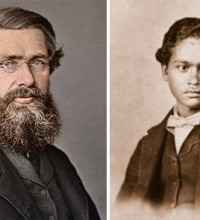
A historian quickly learns there is little absolute truth. The authors of personal memoirs and observer narratives enhance, misremember (sometimes deliberately), censor, and leave out chunks of information.
Rarely, though, do historians try to go beyond the facts and speculate on the emotions, intentions, and psychological motivations of their research subjects.
As a fun exercise, I’ve created several “imagined conversations” between Alfred Russel Wallace and his assistant Ali, based on tidbits of information and provocative clues found in Wallace’s narratives.
Read MoreWhat’s His Name?
Posted on 29. Sep, 2023 by Paul Sochaczewski in Alfred Russel Wallace and his assistant Ali
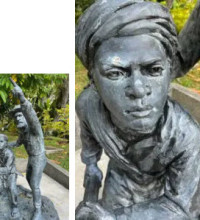
Why should we care about an illiterate 19th-century teenager from Borneo named Ali? More to the point, why should we spend time trying to learn his full name?
A lad simply named Ali, spent six years travelling with Alfred Russel Wallace throughout Southeast Asia.
The primary source for information about Ali comes from Wallace, who mentions Ali 42 times in his classic book The Malay Archipelago and again in his autobiography My Life. In addition, there are three elements of (convincing) second-hand evidence that add context to Ali’s life, but none of them mention Ali’s family name. Spenser St. John, a close friend of James Brooke, the first White Rajah of Borneo, employed a competent young cook named Ali, and it appears that Ali left St. John’s service to work with Wallace. Brothers Frederick and Arthur Boyle, young English adventurers who explored Sarawak, hired Ali as guide and camp manager. They called him Ali Kasut, Ali of the Shoes, in recognition of the black leather shoes he always wore. And in 1907, Thomas Barbour, a respected American naturalist, met a “wizened od Malay man” on Ternate island who called himself Ali Wallace. The idea that Ali described himself as son-of-Wallace is poignant, but doesn’t help with genealogical research.
Read MoreWhat I learned by writing an “enhanced biography” of a little-known 19th-century teenager from Borneo
Posted on 07. Jul, 2023 by Paul Sochaczewski in Alfred Russel Wallace and his assistant Ali
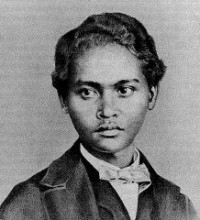
“Look Here, Sir, What a Curious Bird” What I learned by writing an “enhanced biography” of a little-known 19th-century teenager from Borneo Consider the lives of great men and women who explored the curious corners of the world, who made momentous discoveries in science and technology, who created important works of art. We can safely […]
Read MoreA Renoir in the Attic
Posted on 25. Aug, 2021 by Paul Sochaczewski in Alfred Russel Wallace and his assistant Ali
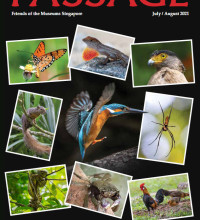
Alfred Russel Wallace makes starting discoveries in Singapore, and how biodiversity can be found in everyone’s backyard. Centerfold article in the July/August 2021 magazine Passage, published by Friends of the Museums Singapore.
Read MoreThe search for Ali
Posted on 30. Jan, 2018 by Paul Sochaczewski in Alfred Russel Wallace and his assistant Ali

This article is excerpted from a chapter in Dead, But Still Kicking. Part I–The Set-Up contains an extensive review of Ali’s background and how he assisted Wallace, Part II-The Conversation with Spirits reviews my frustrating attempts to “speak” with Ali with the help of various mediums. The Search for AliCan eager shamans solve the […]
Read MoreUnusual critters
Posted on 05. Apr, 2017 by Paul Sochaczewski in Alfred Russel Wallace and his assistant Ali
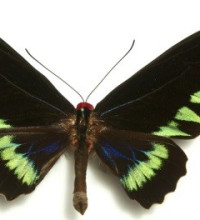
WALLACE’S CRITTERS Some intriguing Southeast Asian critters inspired by Alfred Russel Wallace’s The Malay Archipelago Alfred Russel Wallace (1823-1912) explored Southeast Asia for eight years in the mid-19th century, collecting some 125,000 specimens which included thousands of new species. His observations, compiled in his classic The Malay Archipelago, contributed to the fields of biology, evolutionary […]
Read MoreWhy do boys leave home?
Posted on 05. Apr, 2017 by Paul Sochaczewski in Alfred Russel Wallace and his assistant Ali
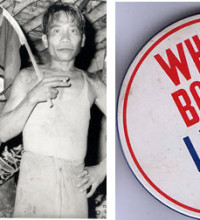
WHY DO BOYS LEAVE HOME? The rite of passage and the teenage imperative BATANG AI, Sarawak, Malaysia I stood on a ridge near the border between Malaysian Sarawak and Indonesian Kalimantan. I had been gone half the day and had not brought food. Time to return to camp, a damp grouping of leaky impromptu […]
Read MoreHappy birthday Alfred
Posted on 11. Jul, 2011 by Paul Sochaczewski in Alfred Russel Wallace and his assistant Ali
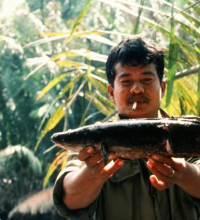
HAPPY BIRTHDAY ALFRED Is a man’s most valuable possession his bow and arrow or a butterfly or a memory or simply time? What do you give a guy who lived a hundred and fifty years ago? JIRLAI, Aru, Indonesia What do you give a guy who lived a hundred and fifty years ago? I write […]
Read MoreWilderness in Singapore? Who woulda thought?
Posted on 11. Jul, 2011 by Paul Sochaczewski in Alfred Russel Wallace and his assistant Ali
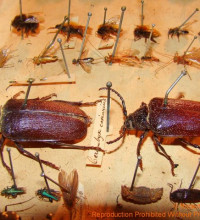
WILDERNESS IN SINGAPORE? WHO WOULDA THOUGHT? Singapore proved a Coleoptera paradise for Victorian explorer Alfred Russel Wallace; new creatures still emerge BUKIT TIMAH, Singapore Visitors come to Singapore to shop or to learn about other cultures, to close a business deal or attend a conference. A century and a half ago, though, one of Singapore’s […]
Read MoreShooting Orangutans and Pondering the Universe
Posted on 25. Jun, 2010 by Paul Sochaczewski in Alfred Russel Wallace and his assistant Ali, Articles
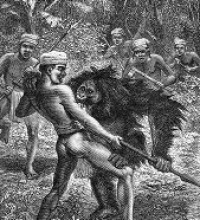
Alfred Russel Wallace spent 18 lonely months in Sarawak, writing the precursor to his theory of evolution. SANTUBONG, Sarawak, Malaysia Different people react to solitude in different ways. Some people converse with demons and angels. Some folks become truly, giggling-at-midnight mad. Some find enlightenment. And once in a while a guy who spends too many […]
Read MoreWhy Travel Far?
Posted on 25. Jun, 2010 by Paul Sochaczewski in Alfred Russel Wallace and his assistant Ali, Articles
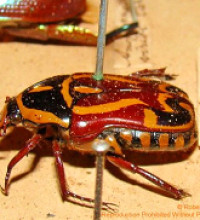
Wallace’s rite of passage and the teenage imperative BATANG AI, Sarawak, Malaysia Why travel far (and treacherously), leaving behind comfort, friends and security? This question turned in my mind as I looked for orangutans while following the trail of Alfred Russel Wallace, who travelled some 22,400 kilometers in the Malay Archipelago from 1854 to 1862. […]
Read MoreThe Man with Pins in His Lungs
Posted on 25. Jun, 2010 by Paul Sochaczewski in Alfred Russel Wallace and his assistant Ali, Articles
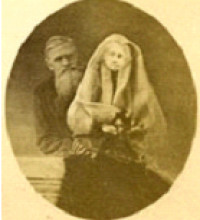
After dinner in Sulawesi, chatting with a man who speaks with Moses BOGANI NANI WARTABONE NATIONAL PARK, Sulawesi Over the grilled fish I asked about spirits. We were eating lunch in a simple warung outside Bogani Nani Wartabone National Park in north Sulawesi. I sensed that my companions had tales to tell. Endie’s father was […]
Read MoreThe Literate Orangutan
Posted on 25. Jun, 2010 by Paul Sochaczewski in Alfred Russel Wallace and his assistant Ali, Articles
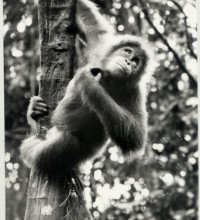
Trying to teach a red ape to write SEPILOK, Sabah, Malaysia What if we could communicate with other species? What could an orangutan tell us about her life, about her emotions when her rainforest is chopped down, about the rascally behavior of randy adolescent male orangutans? * * * * * I’ve seen orangutans in […]
Read MoreWho Gets Credit, Who Takes Credit, for Changing the World?
Posted on 25. Jun, 2010 by Paul Sochaczewski in Alfred Russel Wallace and his assistant Ali, Articles
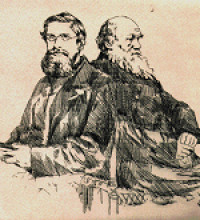
Did Darwin steal from Wallace? Attributing glory can be a tricky business TERNATE, Indonesia Who gets credit, and who takes credit, for changing the world? July 1, 1858 was a modest news day in mid-19th century London. Thirty-nine year old Queen Victoria went horseback riding, Madame Tussaud announced a wax image of United States President […]
Read MoreDreaming of Malthus
Posted on 25. Jun, 2010 by Paul Sochaczewski in Alfred Russel Wallace and his assistant Ali, Articles
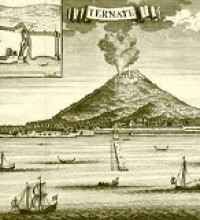
During a malarial fit, Alfred Russel Wallace has his eureka moment about natural selection TERNATE, Indonesia The economic theory of Thomas Malthus isn’t what most people suffering a malaria delusion would dream about. But Alfred Russel Wallace, the sweaty patient in question, wasn’t a humdrum guy. * * * * * Here’s what transpired. Alfred […]
Read More